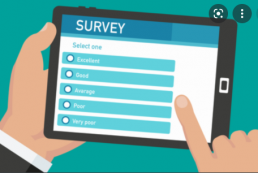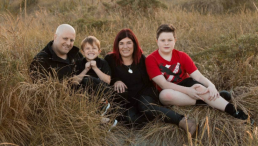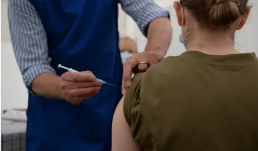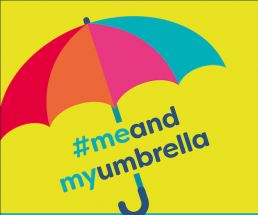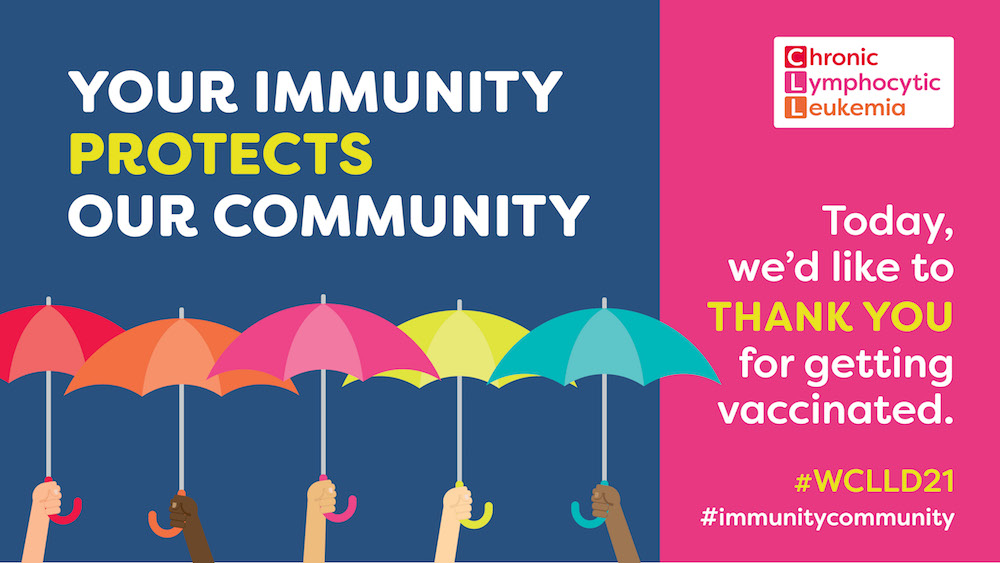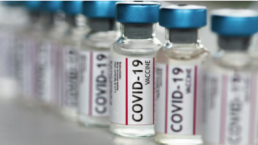Global Leukemia Patient Experience Survey 2021
Global Leukemia Patient Experience Survey 2021
The CLL Advocates Network needs your input.
The CLL Advocates Network is asking for you to contribute to the 2021 Global Leukemia Patient Experience Survey.
The survey has been created in collaboration by Acute Leukaemia Advocates Network (ALAN), CLL Advocates Network (CLLAN) and CML Advocates Network (CMLAN). The aim of this survey is to collect key data on important areas of patient experience such as diagnosis, treatment and quality of life.
About the survey
This survey will be used to build a global picture of the experiences of people with ALL, AML CLL and CML and their carers, friends and family. Our aim as the CLL Advocates Network is to understand the key issues, experiences and unmet needs for CLL patients. This survey follows the recent survey conducted by CLLAN to explore CLL support provision & needs worldwide, available resources and unmet needs. Both surveys will inform our policy work and strategic planning to best support the CLL community with summary reports and core recommendations that will also be presented at conferences as abstracts and posters.
Where is the survey?
The survey can be accessed using the following link: https://www.oc-meridian.com/IQVIAIF/completion/custom/default.aspx?slid=164&did=
The CLL Advocates Network thanks you for your support!
'I am screwed if it comes back' Experts concerned by Covid's hidden impact on blood cancer treatments
'I am screwed if it comes back': Experts concerned by Covid's hidden impact on blood cancer treatments
This article was originally posted on Stuff
Around 21,000 Kiwis are living with blood cancer. Symptoms can be difficult to recognise, and experts worry that some people aren’t getting diagnosed as our health system tackles the impact of Covid-19. Hayley McLarin investigates.
Neil Brownlie has beaten blood cancer three times in a decade.
The former electrician from Dunedin has overcome Hodgkin lymphoma, Burkitt lymphoma and acute myeloid lymphoma. Doctors tell him they haven’t known any other patient to have three different blood cancers.
But at 37, he’s had so much chemotherapy he’s been told he cannot afford to get cancer again, and his body won’t withstand any more chemo.
WATCH - Blood Cancer Patient Forum 2021
Blood Cancer Patient Forum 2021
UPDATE
The 2021 Blood Cancer Patient Forum. held virtually, is now available to view online.
You can view the playlist below and on Youtube here
Dear all,
Tomorrow was to be the 2021 Blood Cancer Patient Forum held in Christchurch. This conference has an excellent programme, which is now all virtual. It is such a pity that it won’t be held live in Christchurch, because of lockdown.
The speakers all will be very good, and for those struggling with lockdown, it will give you an informative and structured event for your weekend.
Look through the details of the speakers on LBC’s website. You will all have a slightly different slant on what might interest you, but there is lots to recommend.
- Jake Bailey is a full-time speaker and blood cancer survivor. His talk is not to be missed.
- Likewise, David Downs, comedian and author, also a blood cancer survivor, the story behind which he documents in a very funny and thoughtful book “A Mild Touch of the Cancer” is a speaker whose talk is also not to be missed.
The formal medical speakers’ topics of the conference are diverse and informative.
- Professor Peter Browett will talk about chronic leukaemias, and genetics
- Dr Henry Chan about myeloma
- Dr Richard Dooley will talk about state of the art blood cancer and leukaemia treatments, and, very important and potentially lifesaving, how to access the unfunded ones
- Dr Kathryn Forwood will talk about palliative care in haematology
- Dr Amy Holmes will give an update on NHL, and Dr Graeme Kidd will address living with blood cancer.
- Georgina Barr will talk about feet, two parts of our body we don’t tend to look after like we should, until they start to hurt or don’t work as they should
- And there are several excellent talks about the psychosocial and palliative aspects of having leukaemia or blood cancer – by Sue Corkill, Michael Hempseed, Erin Kavanagh, and Elaine Horn.
This will be a valuable and informative event not to be missed. It starts on Friday evening and goes all day Saturday, where there will be sessions in parallel, so you will need to give some thought to what sessions you wish to go to, and so plan ahead. View the programme here.
Enjoy it.
Neil Graham
CLL Horizons 2021 - 5-7 November 2021 - Register Now!
CLL Horizons 2021 - 5-7 November 2021 - Register Now!
The CLL Advocates Network (CLLAN) Steering Committee is pleased to announce the 4th international CLL Horizons Conference which will be held in a fully virtual format.
REGISTRATION IS NOW OPEN! Please REGISTER HERE to join us online at CLL Horizons 2021 (CLLHZ 2021) from 5-7 November!
The CLL Horizons Conference is a unique opportunity for patient advocates and patient organisation representatives supporting CLL patients to:
· Learn about the disease, treatments and latest research from leading doctors
· Hear from fellow advocates on key topics, including awareness, education and drug access
· Network virtually with others doing similar work, giving them the opportunity to discuss issues facing CLL patients.
You will gain important knowledge that will help you improve your support of CLL patients in your community.
The 3-day conference will be conducted in English, and some sessions will be duplicated to allow participation of attendees joining from the Southern Hemisphere.
The conference includes topics of importance to the CLL patient community and provides a unique opportunity for participants to share experiences and best practice. We have again been able to attract renowned experts and speakers from different parts of the world, such as Prof Florence Cymbalista from France, Prof Con Tam from Australia or Prof Anna Schuh and Dr. Talha Munir (both from UK). You will find interesting medical and advocacy sessions as well as plenty of interactive panel sessions.
The platform offers an exhibition space for groups to showcase their activities, materials and projects. You will also be given the opportunity to submit a poster on any general CLL advocacy support activity of your choice as well as to submit abstract on a best practice example around “The impact of the pandemic on Patient Organisations – best practice examples of transforming challenges into opportunities.” Three abstracts will be selected and winners will get the opportunity to present these in our “Hear from the regions” on Day 2. More details will be shared once you have registered.
You can access a top-line conference agenda HERE!
If you are curious to learn more about previous Horizons conferences, access the videos of sessions held in prior years and read the conference summary reports, please check out the “Go to previous CLL Horizons Conferences“ at the bottom of the CLLHZ section on our website.
And now REGISTER FOR CLL HORIZONS 2021 HERE!
Should you have questions, please do not hesitate to get in touch with our Event Manager, Natasha Sambhi at natasha@successful-events.co.uk. Natasha will be happy to help you with your questions.
We look forward to seeing you (virtually!) in November!
Understanding your connection with Clinical Trials 2021
Understanding your connection with Clinical Trials 2021
Andrew Schorr has kindly shared this on our CLL Advocates NZ Private Facebook Group which we thought was well worth sharing further.
“Some of us have been in a clinical trial? Have you? I have been in two. And if you haven’t, how come? Later this month I am the keynote speaker for 1,000 scientists and coordinators who run trials worldwide. They want to hear from me and you. Please take 4 minutes and participate in my survey (there is no sponsor other than me!). Your privacy is protected but your experience pro or con is important. Here’s the link. Thanks for helping!
Access the survey here: https://survey.alchemer.com/s3/6490816/Understanding-Your-Connection-with-Clinical-Trials-2021
Who will be eligible for a third Covid jab in the UK?
Who will be eligible for a third Covid jab in the UK?
This article was originally published on The Guardian
Half a million people in the UK who have severely weakened immune systems are to be offered third shots of Covid vaccines in an effort to improve their protection against the disease.
So what is the advice, who is eligible, and where does this leave plans for an autumn booster programme?
What is the new advice on vaccines?
The government’s independent vaccine advisers, the Joint Committee on Vaccination and Immunisation (JCVI), has recommended a third shot of Covid vaccine for people with severely weakened immune systems. The committee estimates 400,000 to 500,000 patients aged 12 and over are eligible in the UK.
An expert hematologist/oncologist highlights
An expert hematologist/oncologist highlights
This article was originally published on OncLive
Tara Graff, DO, MS: If somebody asked me the most important things to do with a newly diagnosed patient with CLL [chronic lymphocytic leukemia], first and foremost—I can’t say this enough—it’s so important to check all the different genomic aberrations. You need to know. We’re always used to, “13q, they’ve got great disease, they’re never going to need treatment.” But that’s a knee-jerk reaction. It’s important to know that, but there are so many other molecular aberrations that we need to know about, specifically 17p, TP53, and the IGHV mutational status. We need to know that. Looking back, when I’ve picked up patients who may have been seen by another provider, those weren’t checked. We could have potentially done them a disservice in the past if we gave FCR [fludarabine, cyclophosphamide, rituximab] to a patient who had an unmutated IGHV. They have a really poor response to chemotherapy-immunotherapy, but we didn’t always know that. That wasn’t always being tested routinely.
Update on treatment of Covid-19 in CLL patients
CLLANZ Newsletter August 2021 - Update on treatment of Covid-19 in CLL patients
It is well recognised that the immune response to Covid 19 infection of individuals with CLL is markedly poorer than that of the general population, with associated increased hospitalisation rates, and increased mortality from the disease. It is thought that about 40% of patients with CLL do not develop an adequate antibody response to Covid 19 infection, or to Covid 19 vaccinations.
For this reason we can be much encouraged by the major recent therapeutic development of a monoclonal antibody to treat or reduce the risk of developing acute Covid 19 infection.
This antibody is known as Ronapreve in the UK and REGEN-COV in the US, and is a combination of two antibodies, casirivimab and imdevimab. It is produced by Regeneron Pharmaceuticals with Roche. Roche is the NZ distributor.
It can be given to at-risk patients as a single dose, IV or subcutaneously after any exposure to a Covid 19 infected individual or with the development of Covid 19 symptoms, in particular for those with a reduced/absent Covid 19 antibody response such as CLL patients. It has been shown to reduce dramatically the rates and duration of the clinical illness (80%), hospitalisation rates (70%), and mortality (25%).
Anyone with CLL who gets Covid 19 symptoms, or has close contact with someone with Covid 19 infection, should immediately self-isolate and call Healthline. But they should also ask the medical staff making their assessment about consideration of this monoclonal antibody as treatment for their condition.
Other monoclonal antibodies are also in the pipeline in relation to Covid 19, including tocilizumab, currently being considered by Pharmac for funding for cases of severe Covid 19 pneumonia.
There are additional aspects of Covid 19 infection risk-reduction that should also be part of all CLL patients’ plans/behaviour. Vaccination is of course the big one, and is central to prevention and reduction in severity of Covid 19 infection. There is mounting evidence that CLL patients should have three vaccination shots, the third being a ‘booster’, which is believed to improve the vaccine response especially in the subgroup with a low antibody response.
I’m sure you will be more than familiar with the other now routine infection-prevention measures such as wearing masks, avoiding crowds and poorly ventilated areas, regular hand washing and social distancing.
Stay safe!
With best wishes
Neil Graham
World CLL Day - 1 September
World CLL Day - 1 September
Every 1 September, the global CLL community unites to raise awareness about Chronic Lymphocytic Leukemia (CLL) and give those affected by a diagnosis of CLL a much needed voice. On World CLL Day we come together to improve understanding of the vulnerability of CLL patients and the challenges involved in living with CLL.
Access and share WCLLD21 Campaign Materials
You will find a variety of online resources for easy download to promote World CLL Day on your Social Media accounts and other online channels. You can either download specific images by clicking on the image of your choice in the overview below OR you click on the red button below to go to full set of Campaign Materials adjusted for different Social Media channels.
Responses to COVID-19 Vaccines Vary in Patients With Hematologic Malignancies
Responses to COVID-19 Vaccines Vary in Patients With Hematologic Malignancies
This article was originally published on Cancer Therapy Advisor
Patients with hematologic malignancies are known to be at risk of severe outcomes from COVID-19, and experts have recommended prioritizing these patients for COVID-19 vaccination.1,2
However, research has suggested that patients with hematologic malignancies may not mount an effective antibody response to vaccination.3
A study recently published in Cancer Cell provides insight into which hematologic malignancies and anticancer treatments confer a greater risk of poor antibody response, as well as which vaccine may be more likely to produce a response in patients with blood cancers.
To continue reading this article on Cancer Therapy Advisor
